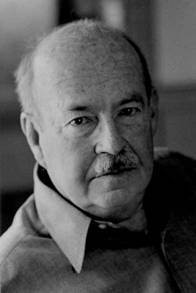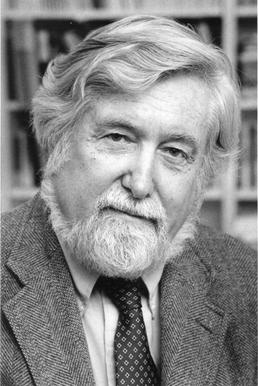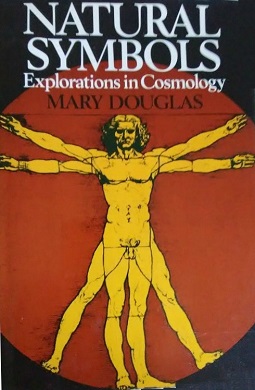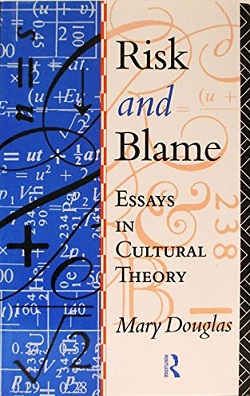Contents
In the second edition, the volume contains 21 essays divided into three sections: "Essays on the Implicit", comprising essays from the 1950s, primarily about specific aspects of Lele culture and ending with "Looking Back on the 1950s essays"; "Critical Essays", comprising essays from the 1960s, often commenting directly on the work of other anthropologists, such as Godfrey Lienhardt, and ending with "Looking Back on the 1960s essays"; and "Essays on the a priori", comprising essays from the 1970s, discussing risk, food, and the broader issues of categorization that were becoming one of Douglas's main intellectual concerns, and ending with "Looking Back on the 1970s essays".
The essay "Jokes" was reprinted in Rethinking Popular Culture: Contemporary Perspectives in Cultural Studies, edited by Chandra Mukerji and Michael Schudson (1991), pp. 291–310.

Cultural anthropology is a branch of anthropology focused on the study of cultural variation among humans. It is in contrast to social anthropology, which perceives cultural variation as a subset of a posited anthropological constant. The term sociocultural anthropology includes both cultural and social anthropology traditions.

Structuralism is an intellectual current and methodological approach, primarily in the social sciences, that interprets elements of human culture by way of their relationship to a broader system. It works to uncover the structural patterns that underlie all the things that humans do, think, perceive, and feel.

Talcott Parsons was an American sociologist of the classical tradition, best known for his social action theory and structural functionalism. Parsons is considered one of the most influential figures in sociology in the 20th century. After earning a PhD in economics, he served on the faculty at Harvard University from 1927 to 1973. In 1930, he was among the first professors in its new sociology department. Later, he was instrumental in the establishment of the Department of Social Relations at Harvard.

Ethnography is a branch of anthropology and the systematic study of individual cultures. Ethnography explores cultural phenomena from the point of view of the subject of the study. Ethnography is also a type of social research that involves examining the behavior of the participants in a given social situation and understanding the group members' own interpretation of such behavior.

Sir Edward Evan Evans-Pritchard FBA FRAI was an English anthropologist who was instrumental in the development of social anthropology. He was Professor of Social Anthropology at the University of Oxford from 1946 to 1970.
The cultural turn is a movement beginning in the early 1970s among scholars in the humanities and social sciences to make culture the focus of contemporary debates; it also describes a shift in emphasis toward meaning and away from a positivist epistemology. The cultural turn is described in 2005 by Lynette Spillman and Mark D. Jacobs as "one of the most influential trends in the humanities and social sciences in the last generation." A prominent historiographer argues that the cultural turn involved a "wide array of new theoretical impulses coming from fields formerly peripheral to the social sciences," especially post-structuralism, cultural studies, literary criticism, and various forms of linguistic analysis, which emphasized "the causal and socially constitutive role of cultural processes and systems of signification."

Clifford James Geertz was an American anthropologist who is remembered mostly for his strong support for and influence on the practice of symbolic anthropology and who was considered "for three decades... the single most influential cultural anthropologist in the United States." He served until his death as professor emeritus at the Institute for Advanced Study, Princeton.
Nacirema is a term used in anthropology and sociology in relation to aspects of the behavior and society of citizens of the United States of America. The neologism attempts to create a deliberate sense of self-distancing in order that American anthropologists might look at their own culture more objectively.

Dame Mary Douglas, was a British anthropologist, known for her writings on human culture, symbolism and risk, whose area of speciality was social anthropology. Douglas was considered a follower of Émile Durkheim and a proponent of structuralist analysis, with a strong interest in comparative religion.

Material culture is the aspect of culture manifested by the physical objects and architecture of a society. The term is primarily used in archaeology and anthropology, but is also of interest to sociology, geography and history. The field considers artifacts in relation to their specific cultural and historic contexts, communities and belief systems. It includes the usage, consumption, creation and trade of objects as well as the behaviors, norms and rituals that the objects create or take part in.
Psychological anthropology is an interdisciplinary subfield of anthropology that studies the interaction of cultural and mental processes. This subfield tends to focus on ways in which humans' development and enculturation within a particular cultural group—with its own history, language, practices, and conceptual categories—shape processes of human cognition, emotion, perception, motivation, and mental health. It also examines how the understanding of cognition, emotion, motivation, and similar psychological processes inform or constrain our models of cultural and social processes. Each school within psychological anthropology has its own approach.
In social science, foodways are the cultural, social, and economic practices relating to the production and consumption of food. Foodways often refers to the intersection of food in culture, traditions, and history.

Culture is a concept that encompasses the social behavior, institutions, and norms found in human societies, as well as the knowledge, beliefs, arts, laws, customs, capabilities, and habits of the individuals in these groups. Culture is often originated from or attributed to a specific region or location.
Jeffrey Charles Alexander is an American sociologist, and a prominent social theorist. He is the founding figure in the school of cultural sociology he refers to as the "strong program".

Natural Symbols: Explorations in Cosmology is an influential book by the British cultural anthropologist Mary Douglas. Further editions were published in 1973, 1982, 1996, 2003. It was also published in 2003 as volume 3 in Mary Douglas: Collected Works (ISBN 0415291062).

Risk and Blame: Essays in Cultural Theory is a collection of essays by the influential British cultural anthropologist Mary Douglas.
Social anthropology is the study of patterns of behaviour in human societies and cultures. It is the dominant constituent of anthropology throughout the United Kingdom and much of Europe, where it is distinguished from cultural anthropology. In the United States, social anthropology is commonly subsumed within cultural anthropology or sociocultural anthropology.

R. S. Khare is a socio-cultural anthropologist and a Professor of Anthropology at the University of Virginia, U.S. He is known for studying “from within/without” India's changing society, religions, food systems, and political cultures, and for following the trajectories of contemporary Indian traditional and modern cultural discourses. His anthropology has endeavored to widen reasoned bridges across the India-West cultural, religious-philosophical, and literary distinctions and differences.
Robin Horton was an English social anthropologist and philosopher. Horton carried out specialised study in comparative religion since the 1950s where he challenged and expanded views in the study of the anthropology of religion. He is notable for his comparison of traditional thought systems to Western science. This formed the basis for his analysis of African thought that he published in two instalments in 1967. His work continues to be viewed as important in understanding traditional African religious approaches. For more than four decades Horton lived in Africa, where he conducted research on African indigenous religions, magic, mythology and rituals. During 40 years of residence in Africa, he worked as a researcher and a professor of philosophy and religion at several universities, including the University of Port Harcourt in Rivers State, Nigeria, and the University of Ife in Osun State, Nigeria.
Cultural studies is a politically engaged postdisciplinary academic field that explores the dynamics of especially contemporary culture and its social and historical foundations. Cultural studies researchers generally investigate how cultural practices relate to wider systems of power associated with, or operating through, social phenomena. These include ideology, class structures, national formations, ethnicity, sexual orientation, gender, and generation. Employing cultural analysis, cultural studies views cultures not as fixed, bounded, stable, and discrete entities, but rather as constantly interacting and changing sets of practices and processes. The field of cultural studies encompasses a range of theoretical and methodological perspectives and practices. Although distinct from the discipline of cultural anthropology and the interdisciplinary field of ethnic studies, cultural studies draws upon and has contributed to each of these fields.












